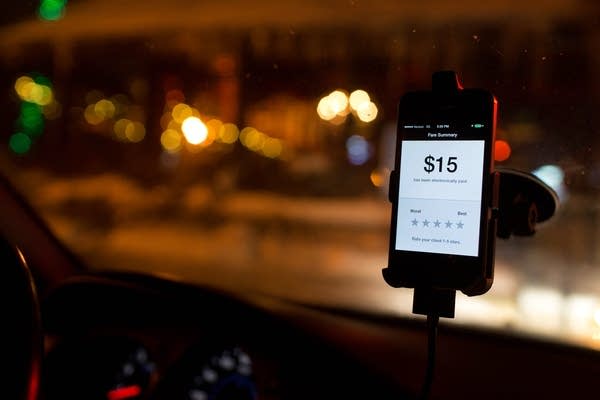Uber, other ride apps shake up Twin Cities transportation

A phone displays the Uber app on driver Jon Sasseville's windshield Friday, Dec. 20, 2013 in St. Paul. Fare transactions are electronic, so drivers do not take money from riders.
Jennifer Simonson / MPR News
Go Deeper.
Create an account or log in to save stories.
Like this?
Thanks for liking this story! We have added it to a list of your favorite stories.


